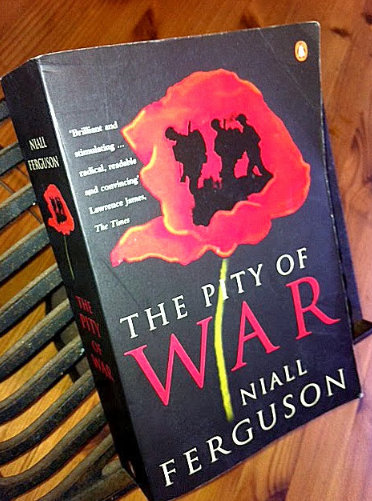

Taken together, Bayly and Ferguson make a compelling case for using a methodology that is more international in scope when interrogating history. For Ferguson, using broad comparisons of different schools of historical thought leads to a broad re-casting of the First World War. The questions that Bayly asks lead to a de-centered telling of nineteenth century world history. By moving away from this narrative construct, and by employing economic, social, diplomatic, and military history, Ferguson is arguing in favor of a broader telling of history (pg. Similarly, Ferguson argues that most historians of the First World War are limited by studying the event "from the vantage point of a single nation state” (pg.

Bayly argues that by employing a global historical lens one can investigate "broader connections," which probe the "assumptions that lie behind the narratives which regional historians construct" (pg. More importantly, however, it is structurally that the two works strongly complement each other. The two works dove-tail nicely, as Bayly's work ends at the beginning of the First World War, and Ferguson deals with the war directly. Methodologically, Ferguson's The Pity of War serves as a complement to C.A.

By using counter-factual questions to model the uncertainties of decision-making, Ferguson is able to convincingly argue against the notion that the war was inevitable, and he makes a strong contribution to the literature on leadership, decision-making and grand strategy. Ferguson addresses his counter-factual questions with economic, social, diplomatic, and military histories to create an approximation of a policy-maker’s priorities, where decisions made are often not the result of one cause, but the result of competing priorities, parliamentary or congressional negotiations, political considerations, paying heed to special interests, and reading conflicting, and often imperfect information. Second, by posing a series of counter-factual inquiries into the First World War Ferguson seeks to “recapture the uncertainty of decision-makers in the past” (pg. His book is an attempt to correct this trend. According to Ferguson, the modern reader’s understanding of the war comes from “newspapers, television, theatre and the cinema” and not from historians (pg. First, he wants to disabuse lay readers of their understanding of the war, and how it is remembered. Niall Ferguson's’s The Pity of War employs a number of counter-factual questions to analytically interrogate the “contradictory…beliefs” that readers commonly hold about First World War (pg.


 0 kommentar(er)
0 kommentar(er)
